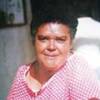Buchi Emecheta (1944–2017)
Author of The Joys of Motherhood
About the Author
Buchi Emecheta was born in Lagos, Nigeria on July 21, 1944. She emigrated to London, England in 1960. She received a sociology degree at the University of London. She worked as a social worker for a number of years and contributed a column to the New Statesman about black British life. She wrote 20 show more novels during her lifetime including The Joys of Motherhood, The Rape of Shavi, Second Class Citizen, Into the Ditch, The Bride Price, and The New Tribe. Her first play, A Kind of Marriage, was screened on BBC TV in 1976 and was adapted into a novel in 1986. Her autobiography was entitled Head Above Water. In 2005, she was made an OBE for services to literature. She died on January 25, 2017 at the age of 72. (Bowker Author Biography) show less
Series
Works by Buchi Emecheta
Emecheta, Buchi Archive 1 copy
The bride price 1 copy
Carta del milenio 1999 1 copy
NO FUNDO DO POÇO 1 copy
Associated Works
Daughters of Africa: An International Anthology of Words and Writings by Women of African Descent from the Ancient… (1992) — Contributor — 167 copies
The Pleasure of Reading: 43 Writers on the Discovery of Reading and the Books that Inspired Them (2015) — Contributor — 90 copies, 2 reviews
Tagged
Common Knowledge
- Canonical name
- Emecheta, Buchi
- Legal name
- Emecheta, Florence Onye Buchi
- Birthdate
- 1944-07-21
- Date of death
- 2017-01-25
- Gender
- female
- Nationality
- Nigeria (birth)
UK - Birthplace
- Lagos, Nigeria
- Place of death
- London, England, UK
- Cause of death
- dementia
- Places of residence
- Yaba, Nigeria
London, England, UK
Calabar, Nigeria - Education
- University of London (Sociology)
- Occupations
- sociologist
poet
playwright
novelist - Organizations
- Ogwugwu Afor Publishing Company
- Awards and honors
- Granta's Best of Young British Novelists (1983)
OBE
Members
Reviews
Lists
AP Lit (1)
Read These Too (1)
Awards
You May Also Like
Associated Authors
Statistics
- Works
- 25
- Also by
- 9
- Members
- 2,502
- Popularity
- #10,263
- Rating
- 3.7
- Reviews
- 53
- ISBNs
- 184
- Languages
- 13
- Favorited
- 5

















Moving through rural to urban colonial Nigeria, this book explores the burdening demands placed on women. Nnu Ego who is the protagonist of the story lives her whole life in servitude of the men in her life, first her father then her husband and later her sons, all the while leaving her with nothing but harsh solitude and weariness.
I normally hesitate to call books powerful, but this one truly is.… (more)